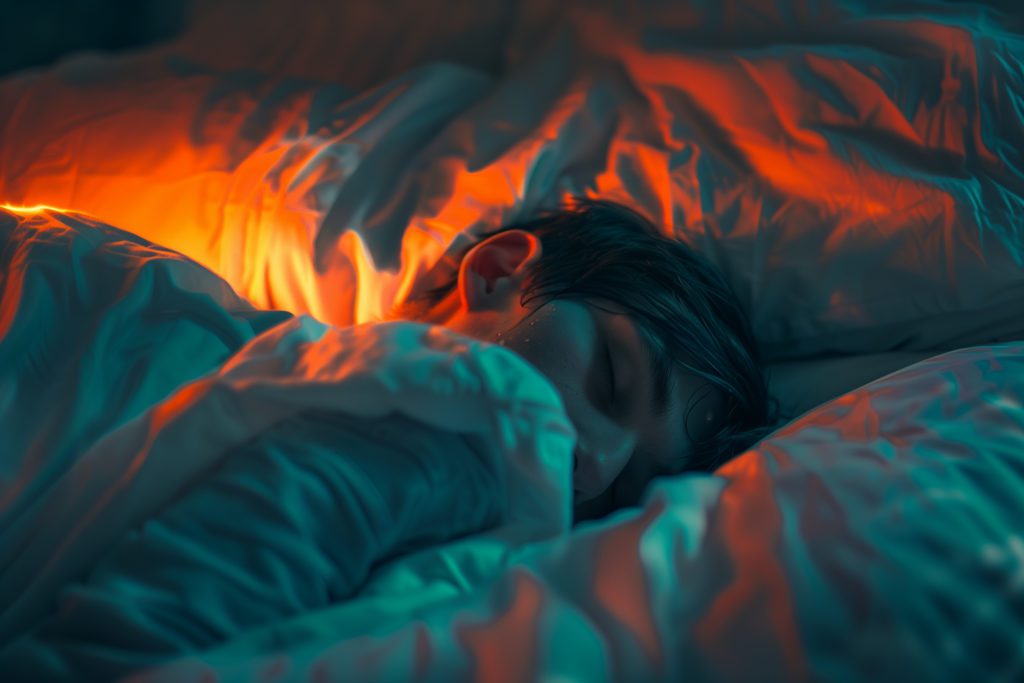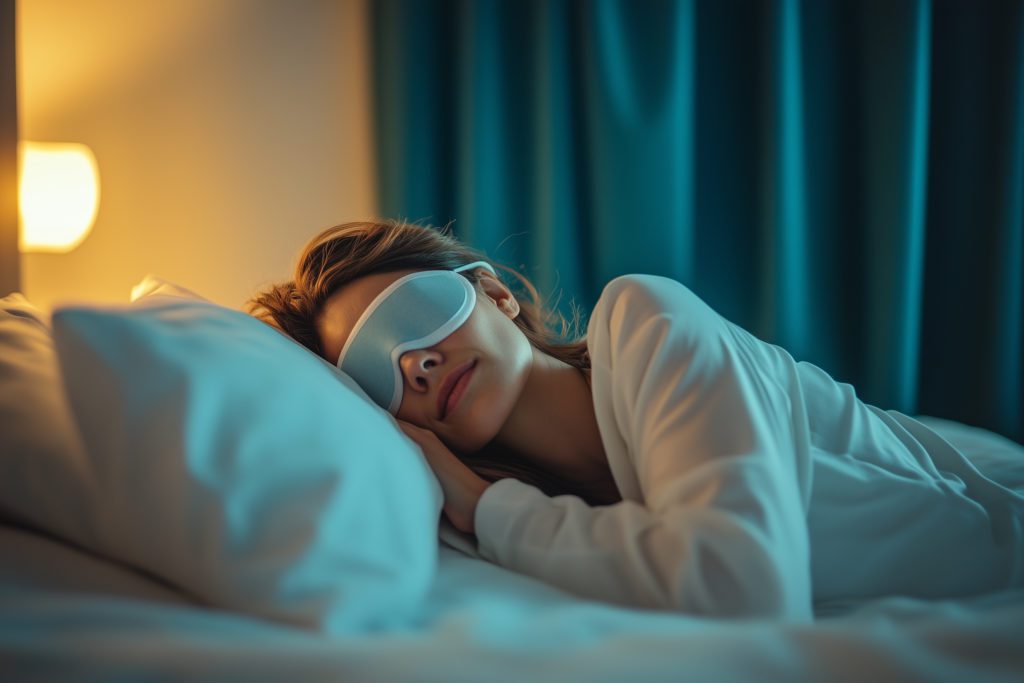
How Decluttering Your Bedroom Can Lead to Improved Sleep
The clutter in your bedroom can impact your sleep quality. Learn about the connection between sleep and clutter and how to get better sleep.

Many people who have trouble sleeping may also not know there is a link between a cluttered bedroom and poor sleep quality. If your room is full of clutter, it can affect your sleep more than you think. While cleaning a messy room isn't a cure-all for poor sleep, it can reduce evening stress and set you up for success. You can take that first simple step towards achieving better sleep by rolling up your sleeves and tackling your bedroom clutter.
How Clutter Impacts Your Sleep Quality
Your physical environment can influence your emotional state and cognitive abilities. For example, your cluttered bedroom may contribute to cognitive overload and increased stress. One study found that individuals who felt their home environments were messy and cluttered experienced a higher level of stress than those who felt their homes were less cluttered. Subsequently, their levels of the stress-related hormone called cortisol were higher than those who felt better about their home's appearance and organization.
If your bedroom is constantly cluttered, you may live in a continuous low-grade level of "fight or flight" response, which increases your stress hormones, making it more difficult to fully relax and fall asleep. Research also indicates that high cortisol levels can contribute to insomnia, frequent nocturnal awakenings and fragmented sleep. Fortunately, there are effective ways to remove clutter from your bedroom so you can start sleeping easier tonight.
Easy Steps To Declutter Your Bedroom
While it can seem overwhelming to tackle a disorganized bedroom (especially if you have a lot of clutter), it's best to break this process down into smaller steps. Consider starting this process on the weekend or when you have ample time to get the job done.
Formulate a Plan
Getting started on a decluttering project can be overwhelming, especially if you don't know where to start or the clutter has been gathering for a while. Consider taking a picture of your room from several angles. This way, you can form a plan based on your photographs. Write a list of what you need to throw out, relocate to another room or place somewhere else in your bedroom.
Identify Misplaced Items
One of the easiest ways to begin decluttering your room is to identify what doesn't belong there. Dishes, dirty clothing, office papers and items belonging to others are good places to start. Gather all of those items in a box or laundry basket. Once you're finished, put them back in their proper place.
Tackle the Piles
Chairs and loveseats tend to become receptacles for clutter, particularly piles of laundry that are not quite dirty. Consider hanging hooks on your closet door to keep them off your furniture. If you have any piles of mail or paper clutter on your bedside table, sort through those, too, before moving on to the next step. Sometimes, just clearing out these areas can create a more relaxing effect on your mood.
Organize Your Trinkets
Jewelry, knick-knacks, makeup and other small items often make any flat surfaces in your bedroom look cluttered. While you may want to keep some items accessible, everything should have its own place. First, gather all the small items that clutter up your dresser, entertainment center and other areas throughout your bedroom. Once you're done, determine which items can be stored elsewhere and which should stay close. You can place the items you choose to keep nearby in decorative bowls or trinket boxes. This way, you still have your essential items on hand, but it looks much more organized.
Deep Clean Your Bedroom for Optimal Sleep Hygiene
While clearing the clutter is vital in creating a healthy sleep space, you should also pull out the vacuum and cleaning supplies. Dust and germs can interfere with your sleep quality and may cause allergy symptoms that make it difficult to drift off. Just a few simple strategies and easy tips can help you breathe better tonight.
Wash Your Bedding
Your bed linens are hotbeds for germs, dust and allergens. Make sure to wash them at least once weekly in hot water. If you tend to sweat in your sleep, have allergies or sleep with a pet, you should wash them more frequently to keep them fresh and clean. Also, make sure your bedding is comfortable. Choose sheets that keep you cool at night, and consider breathable fabrics with a higher thread count.
While washing is an important step in keeping your bed hygienic, make sure to also use allergy covers for your mattress to prevent dust mites from burrowing in and replace your polyester pillows annually. Consider an upgrade if you are still sleeping on a mattress that's ten years old or older. As mattresses age, they lose their ability to support your body weight and tend to sag over time.
Wipe Down Surfaces and Pull Out the Vacuum
Use a cloth or a handheld duster to dust furniture, frames and other nonporous surfaces throughout your bedroom. You should also wipe down baseboards with a soapy damp cloth. Disinfect your light switches and doorknobs with antibacterial wipes or spray.
When vacuuming, many people focus on the carpet but forget other areas that also need attention. Use your vacuum's attachments to suck up dust from your curtains, windowsills, walls, floors and AC vents. Don't forget to vacuum underneath your bed and inside your closet. This will remove dust and allergens from your bedroom and help you breathe better.
If decluttering your bedroom seems overwhelming, you can always consider starting small. Tonight, take five minutes to put a few items away in your room and clear whatever surfaces you can within that time frame. Tomorrow night and every other night after that, repeat the process. Different methods work for different people. What matters the most is finding the right decluttering strategy to fit into your life so you can turn your bedroom into a comfortable, relaxing retreat to help you sleep better.

Written by
Emily Mendez
Emily Mendez is a former therapist and mental health author. She is one of the leading voices in mental health. Emily's writing has appeared in eCounseling, SonderMind, and more. Emily is frequently interviewed by Healthline, Fatherly, INSIDER, Family Circle, and other national media for her advice and expert opinion on the latest mental health topics.
Download Pillow
Get help
Press & News
Legal
Connect
X (Twitter)
Company
Copyright © Neybox Digital Ltd.



